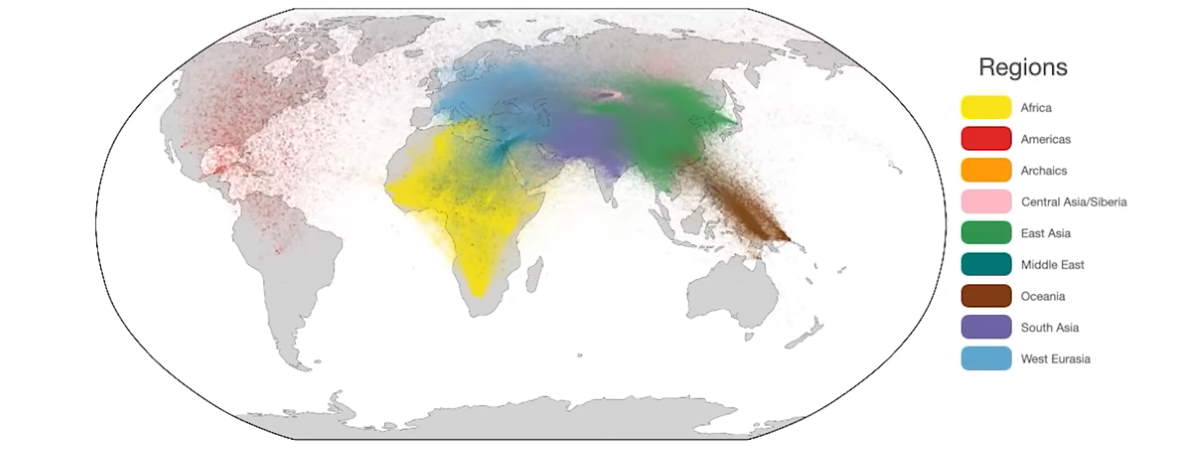Researchers from the Big Data Institute at the University of Oxford in England used DNA analysis to create the largest human family tree ever, dating back 100,000 years. They published their study titled “A unified genealogy of modern and ancient genomes” in the journal Science.
Category Archives: People
Digital technologies like SHARECITY can reduce food waste
Food waste has reached colossal proportions and the magnitude of the problem requires equally massive resources with the potential to supply sustainable answers. What better than the dynamic digital databases and advanced analytics we literally have access to “at our fingertips”. By Susan Langthorp
Why we can still be hopeful for the future: 3 key statistics
The future may seem dystopian since there are many problems in the world: global warming, environmental problems, biodiversity loss, pandemics, etc… But we can still be hopeful for the future thanks to these three key statistics.
Developing Sustainable Water Purification Technologies using Nanotechnology
A significant proportion of the world’s population has little to no access to clean water, and the water consumed by industrial activities continues to grow. Researchers from the Nanotechnology Enabled Water Treatment (NEWT) Center, which is headquartered at Rice University, are developing cutting-edge water purification technologies that can provide communities with access to clean and …
Continue reading “Developing Sustainable Water Purification Technologies using Nanotechnology”
Recovering drugs from sewers could reduce harm to wildlife
Common medicines that have passed through patients’ bodies are ending up in the environment, but the threat many of them pose to wildlife and human health still needs to be determined. It may even be possible to recover some of these life-saving compounds so they can be reused. By Vittoria D’Alessio
Pros and Cons of Robotics for Hospital Sustainability
When the coronavirus burst onto the scene, healthcare professionals and robotics experts partnered to implement out-of-the-box solutions to pressing needs. In Wuhan, China, a test run of a field hospital staffed by robots took place. The machines, provided by tech company CloudMinds, delivered necessities and medicines and even entertained patients.
The Science Behind Cures: When It Goes Right and When It Goes Wrong
Science is both invaluable and imperfect. In managing cures to all kinds of diseases and ailments, these competing values offer mixed healthcare results. When medical science goes right, it enables protection and prevention, thereby saving lives. When it goes wrong, however, curative science can create more problems for the population.
Will humans go extinct? For all the existential threats, we’ll likely be here for a very long time
Will our species go extinct? The short answer is yes. The fossil record shows everything goes extinct, eventually. Almost all species that ever lived, over 99.9%, are extinct. Some left descendants. Most – plesiosaurs, trilobites, Brontosaurus – didn’t. That’s also true of other human species. Neanderthals, Denisovans, H. erectus all vanished, leaving just H. sapiens. …
The Science Behind the Things That Kill Us (And How to Conquer Them)
Whether it’s gorging on junk food, smoking cigarettes, or binge-watching Netflix in lieu of exercise, bad habits are just part of the human experience. But what is it about negative behaviors, products, and lifestyle choices that make them so attractive? And why are they so addicting?
A History of Pandemics [8000 B.C.-today]
Lindsay Holiday published two-part very informative video series titled “A History of Pandemics” on Youtube. These pandemics (and epidemics) have occurred countless times in the past, infecting, injuring and killing millions, and sometimes changing dramatically the course of human history. But, first, what is a pandemic? What is an epidemic?









